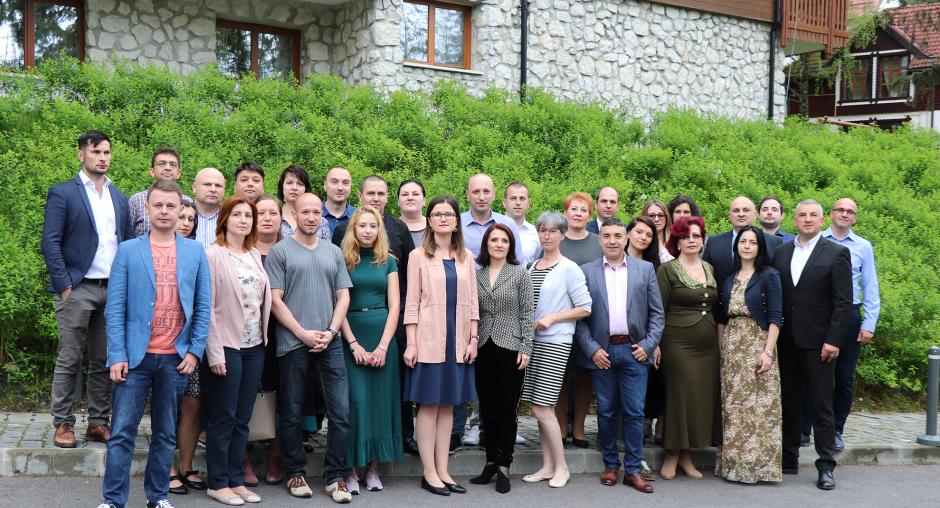OSCE conducts specialized training course on effective responses to gender-based violence for Romanian officials

A specialized training course on appropriate and effective responses to gender-based violence for Romanian police and prosecutors, organized by the OSCE’s Transnational Threats Department/Strategic Police Matters Unit, was held from 27 to 31 May 2019 in Poiana Brasov, Romania.
The course is the second of a series of three national specialized training courses, held in the framework of the regional project “Effective Criminal Justice Strategies and Practices to Combat Gender-based Violence in Eastern Europe”, which is financially supported by the European Union’s Rights, Equality and Citizenship Programme (2014-2020) and the Governments of Germany and Austria. The project is currently being implemented in Bulgaria, Hungary and Romania.
Delivered by trainers who have previously completed the regional train-the-trainers course held in March under the same project, the training aimed to enable first responder police officers and prosecutors to better meet the needs of victims of gender-based violence. The focus was on consolidating the participants’ knowledge of and skills in noticing the signs and signals of violence and referring them to specialized support services. Particular attention was paid to the recent changes in the Romanian law on the prevention of and fight against domestic violence and to the practical application of the new provisions, especially in regard to temporary protection orders.
Built on a victim- and rights-centred approach, the course touched upon the need of improving the attitude and behaviour of criminal justice practitioners towards victims of gender-based violence and perpetrators, to avoid secondary victimization.
The four-day course was followed by a one-day workshop, in which the participants were joined by judges and social workers.
Complementary to the course, the one-day workshop highlighted the importance of a co-ordinated and integrated approach when fighting gender-based violence. The workshop strengthened the participants’ understanding of how improving multidisciplinary co-operation and interaction with regard to gender-based violence cases can contribute to better meeting the needs of victims. It highlighted best practices that could significantly improve the ability to counter gender-based violence crimes.
